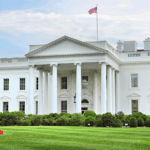In its landmark 2018 Janus v. AFSCME ruling, the United States Supreme Court affirmed that public employees have a First Amendment right to refuse to subsidize the speech of unions through dues payments or any other fees — unless they knowingly consent to waive that right.
Janus was a huge step forward for workers’ rights.
But the case left one big question on the table: If unions can no longer force workers to give them money against their will, can they still be forced to let unions speak for them?
The question turns on the legality of so-called “exclusive representation” clauses.
The term refers to the claimed right of public unions, backed up by various state laws, to “represent” the entirety of a given workforce — even if a majority of its workers do not consent to the representation.
Once a certain threshold is met (usually 30 percent voting in support), the union simply purports to speak for all employees in contract negotiations, lobbying and even political speech on controversial issues.
The result is a system that turns the First Amendment’s guarantee of free association on its head.
But a petition for review recently filed with the court, in which Freedom Foundation filed a brief in support, is a perfect opportunity to settle the constitutionality of exclusive representation laws once and for all.
In its brief, the Freedom Foundation argues that California is a textbook example of exclusive representation gone wrong. On the very day Janus was decided, California lawmakers enacted a statute designed to prevent workers from exercising their First Amendment rights affirmed in Janus.
This law, SB 866, erects several barriers between workers and their employers.
First, the law both prevents employers from seeing the waiver required by Janus (they have to take the unions’ word for it) and prevents employees from communicating their own preferences to their employers.
Second, SB 866 provides unions with a captive audience of new workers on whom it can exert pressure to join. These meetings are required to be kept a secret, and no one but the union or vendors are allowed to attend.
Lastly, SB 866 requires employers to divulge a whole host of each employee’s sensitive personal information to the unions to use in their pressure campaigns.
All these abuses are supposedly justified by exclusive representation.
“(T)he First Amendment protects freedom of association because it makes the right to express one’s views meaningful.” But more than the freedom of association is at stake given the continued reliance of unions on exclusive representation to expand their ranks and maintain their power.
Under laws like California’s SB 866, an employee’s right to the presumption that he or she has not waived their First Amendment rights is burdened, they are forced to endure undue union pressure and their personal information is even forfeit.
The Thompson petition should be granted by the Supreme Court to end the abuse of California public workers’ rights — and the rights of public workers across the country.











